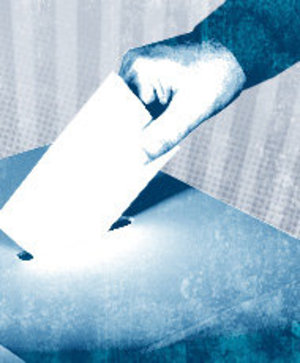HB 2927: National Popular Vote Bill
by Marina Pino, Legal Intern
Before his life story was brought to life on Broadway, Alexander Hamilton penned his distrust in the general population electing its president: “The immediate election should be made by men most capable of analyzing the qualities adapted to the station.” In his “Federalist 68,” Hamilton went on to explain that only a “small number of persons,” which is today known as the Electoral College, had the capabilities of selecting the president.
This language is deeply concerning and undemocratic. Yet, the same system remains in place today. Five presidential elections have since resulted in a candidate who received the most popular votes to still lose the election because she or he did not receive the 270 Electoral College votes needed to win. In the wake of last November’s election, conversations focused around reform of a significantly outdated approach to a democratic presidential election continue to gain momentum.
The conversation was significant enough for Representatives Keny-Guyer, Rayfield, Clem and Senator Boquist to sponsor a National Popular Vote bill in the Legislature earlier this session. Currently enacted by eleven states, National Popular Vote bills have potential to allow state election officials in all states participating in the plan to award their electoral votes to the presidential candidate who receives the largest number of popular votes. The Oregon House of Representatives passed HB 2927 on May 24, making the state one step closer to passing the bipartisan-sponsored bill, and the country seven electoral votes closer to activating the interstate compact.
HB 2927 currently resides in the Senate Rules Committee after its first reading on Senate side. Article III of the bill explains how the national popular vote winner will be determined by each participating state once there are enough electoral votes to activate it. The “chief election official” of each member state will designate the “presidential slate,” or the names of the two candidates who have been nominated by popular vote: President and Vice President.
There are safeguards to the bill. First, Oregon has the flexibility to withdraw from the national Agreement should it be at least six months prior to Election Day. Second, the Agreement amongst the participating states will cease to exist should the Electoral College be abolished.
The National Popular Vote bill is constitutionally sound. Article II, Section 1, Clause 2 of the Constitution reads: “Each State shall appoint, in such Manner as the Legislature thereof may direct, a Number of Electors …” The Supreme Court held in McPherson v. Blacker (1892) that the power of appointment under this clause belongs exclusively to the states.
Some remain unconvinced, though. Opponents of National Popular Vote bills have argued that another provision in the Constitution, Article 1, Section 10, Clause 3, the Compact Clause, prevents states from entering into an agreement to pursue the National Popular Vote. The Supreme Court has held, however, that not all agreements between states are subject to the Clause. In U.S Steel Corp. v. Multistate Tax Comm’n (1978), the Court explained that the Clause was limited to agreements that were directed to the formation of any combination tending to the increase of political power in the states which might interfere with federal supremacy. HB 2927 does not interfere with federal supremacy, since it is the states who have the power to choose its electors.
HB 2927 furthers the democratic principle of “one person, one vote.” Each Oregonian has the potential to have their individual vote directly impact the outcome of future elections. With citizens having equal power in elections, candidates will be more inclined to speak to and listen to citizens’ concerns equally throughout the country.
Our current procedure for presidential elections is historically flawed. HB 2927 has the potential to correct this outdated and undemocratic way of voting. States like Virginia lobbied for the Electoral College at the Constitutional Convention in order to ensure political influence during elections, despite not allowing for a large percentage of their population to vote.
Finally, voter turnout has the potential to continue to improve with the passing of the National Popular Vote. In the 2016 presidential election, Oregon ranked among the top seven states for voter turnout. HB 2927, coupled with Oregon’s U.S. Senators Wyden and Merkley and Representatives Blumenauer, Bonamici, DeFazio, and Schrader most recent Vote-by-Mail Bill to expand Oregon-style vote-by-mail nationwide, emphasizes the importance of combating voter suppression and continuing the trend of increased voter participation.
HB 2927 allows Oregonians to be part of a democratic compact that ensures a presidential candidate with the most votes can win an election. For it was Alexander Hamilton who went on to write in “Federalist 68,” the same piece that championed for the Electoral College, “the true test of a good government is its aptitude and tendency to produce a good administration.” It’s about time the states use their power to do just that.

